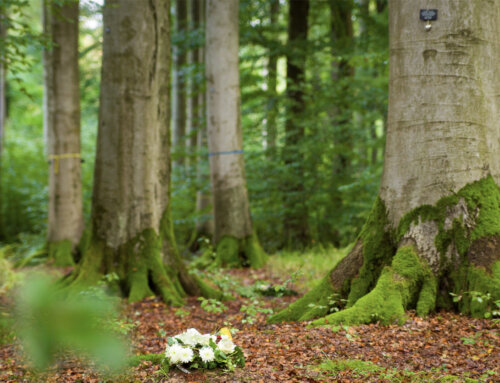Article from Grief In Common
When I first started facilitating bereavement groups, I sort of assumed that people would be coming for help for “just” one loss. Of course one loss is more than enough…it’s already too much. Yet so many grievers I met were experiencing multiple losses.
And while in most of my writings the word “loss” pertains only to the physical loss of a person, for the sake of this piece I’m going to discuss all types of losses. Because let’s face it, as hard as the tangible loss of a loved one is, so can the other losses we experience in life add up and tear us down just as swiftly.
Here are a few examples of the multiple losses a griever can face:
1. Divorce: Talk about not fair. Life is hard enough. Divorce is hard enough. And then the significant loss of a loved one as well? Whether you are in the middle of a divorce or trying to rebuild a life after a recent divorce has been finalized, the death of a loved can shake an already unsturdy foundation. How to get back on your feet when you haven’t even found your footing yet or don’t even know where you’re supposed to stand?
2. Loss of home: This can happen in a number of ways. Often it will be a child who is caring for a parent in the home. They’ve been doing it for years so they gave up their home and moved in to take care of Mom or Dad. So what happens when their loved one is gone? Siblings may come in and say that Mom and Dad’s house needs to be sold for the distribution of the estate. In other cases, following the loss of a spouse, a widow or widower may find they can’t take care of the house on their own, or can’t afford to keep it without their loved one’s income. So in the midst of losing someone so dear and so loved, the griever is also having to figure out…where do I go from here, and where am I supposed to live?
3. Death of a pet: Something interesting always happens when people talk about the death of a pet, especially in the walls of a bereavement group. As everyone goes around, introduces themselves and talks about who they lost, there may come a point where a griever will say, “I’m here because I lost my spouse in February. But just this last month I lost our dog too.” They often cry, sometimes very hard, and this is usually followed by an apology, “I’m sorry, I know it’s just a dog. It may sound so crazy when we’re here talking about all these other losses”. What’s not crazy is how many people quickly chime in and say, “it’s not crazy!” as everyone can agree that losing a pet is a very big and very significant loss. I find the people who lose a spouse can be hit sort of extra hard by this loss. Usually because it’s another “person” they shared the house with who is no longer there. Often because the pet was part of the family unit, something they shared with their spouse…another connection that’s now gone too.
4. Empty Nest: It’s incredibly hard to lose a spouse at a young age. Most of the young grievers I meet turn their time, love, and attention to their kids. But eventually it’s time for them to move out of the house, and then what? This can apply also to anyone who took care of a parent. Following the loss of a parent, there may still be their children to care for, but once their children are out of the house? A caregiver is simply lost without a person to care for and these multiple losses can mean a double hit on the griever’s sense of purpose and identity.
5. Loss of job/Retirement: People are amazing. If there is one thing I have learned in working in this field is just how amazing people are. I don’t care what it says on the news, I see real life examples every day of people giving up their lives to take care of the people they love. It happens all the time. Sometimes this can mean walking away from a job to be more available to care for an ailing loved one. It can mean passing on a promotion, or an opportunity for growth for fear it will take the caregiver away from home more often. Of course there are times that job loss is not a choice and if this happens after a loss, the griever can be left feeling like they just don’t know what to do with themselves. While our jobs are most often a means to afford the things we need, they are just as likely to be a source of our pride and identity too. A place where we can be someone other than “just” wife, mother and daughter. If we’ve retired from a career, and then lost a spouse soon after, it can also mean more hours home alone with no place to go. Finally, the loss of a job can quite simply mean a loss of income. And when grieving the loss of a loved one, who has the mental energy it takes to be job hunting or starting something new?
6. Multiple losses of several loved ones, all within a relatively short period of time: And finally, the sad truth. Of all the multiple losses a person can experience or bring to discuss in a bereavement group, this is the one that I hear most often. Whether it’s the multiple losses of a parent, child, spouse, sibling or friend, there is no good combination and no easy way to cope with so much death. People who are losing their loved ones so close together start to feel like everyone around them is fragile. It becomes easy to lose faith that things could be okay, and it’s just too hard to pick up the pieces again when so many of the people we would normally turn to for support are the ones we have lost.
And now, the “now what?”. In previous writings I have discussed why grief is so hard and why it lasts so long, and that’s because so often I find grievers come to a support group and say, “I don’t know why I’m having such a hard time”.
My answer?
This.
This is the reason you’re having a hard time. Because it’s just so much, and a person can only deal with so much. Not only are you dealing with one major life event, you’ve had several others thrown at you all at the same time.
And the one thing these multiple losses have in common? Change…and for most there’s really nothing harder to deal with than that. Especially when it’s a change we didn’t want and didn’t ask for.
The key to coping with so much loss and so much change is to try and simplify. I often explain grief as one big messy ball of emotion. Just one big ugly feeling of “ugh”, where nothing feels good and with so much going on you can’t possibly know where to start coping.
Think of a messy and cluttered room. Picture the messiest and most cluttered room you could ever imagine- every corner and every part of that room filled and overflowing with books and papers and mail and boxes and clothes and shoes and hangers and laundry and sheets and blankets…just covering every inch of the floor, bed, dressers and shelves.
If you walked into a room like that, and you knew it was your job to clean it, most likely the first thing you would think is,”I don’t even know where to start”.
Coping with the multiple losses in our life can feel much the same way, and the solution for both is the same. Don’t look at the whole room all at once. Because if we look at the whole thing it can be totally overwhelming, and instantly exhausting. A lot of people walk into a room like that and feel that there’s no point in even trying to clean it…that they could never do it all, or that they don’t have what it takes. So instead, we need to focus on one small area, and take care of just one task at a time. Each one of these losses and life changes deserves its own time and attention of mourning and reflection. When feeling sad and overwhelmed by it all, rather than looking at the whole messy room, think: what can I deal with today?
If we’re going to try to ease the symptoms we need to find the cause. Anyone who has kids knows what’s it like when they complain of “not feeling good”. And what’s the first thing we do? Ask a lot of questions. “Does your head hurt? Is it your belly? Do you have a sore throat?”. We need to get to the bottom of specifically what’s bothering them if we’re going to even begin to know how to help or treat the symptoms.
Approach coping with multiple losses the same way. If today you’re feeling extra sad about the divorce – call your close friend who has just gone through a divorce herself, and plan a dinner out together. Having a hard time after retirement? Start looking into those volunteer opportunities you always wished you’d have the time to do. Suffering with the empty nest? Call the kids, or even better, plan a visit. If you’ve lost a pet? Find a shelter or rescue that could use a loving person to walk dogs. And if you’re dealing with multiple losses of loved ones? Give each of those losses their own time and acknowledgment. Find a way to honor them or remember them individually. Try not to lump all of the pain together as it may only serve to minimize the importance that each individual person played in your life.
And return to the idea of the messy room. Walk in slowly. Sit down, take your time and focus on one section at a time. You can only deal with what’s right in front of you. Don’t try and tackle it all at once and try not to let the size of the grief stop you from managing it.
Coping with multiple losses can be overwhelming. When dealing with so much, sometimes the only way to move forward is to truly face each issue, like each section of that room, one at a time…






